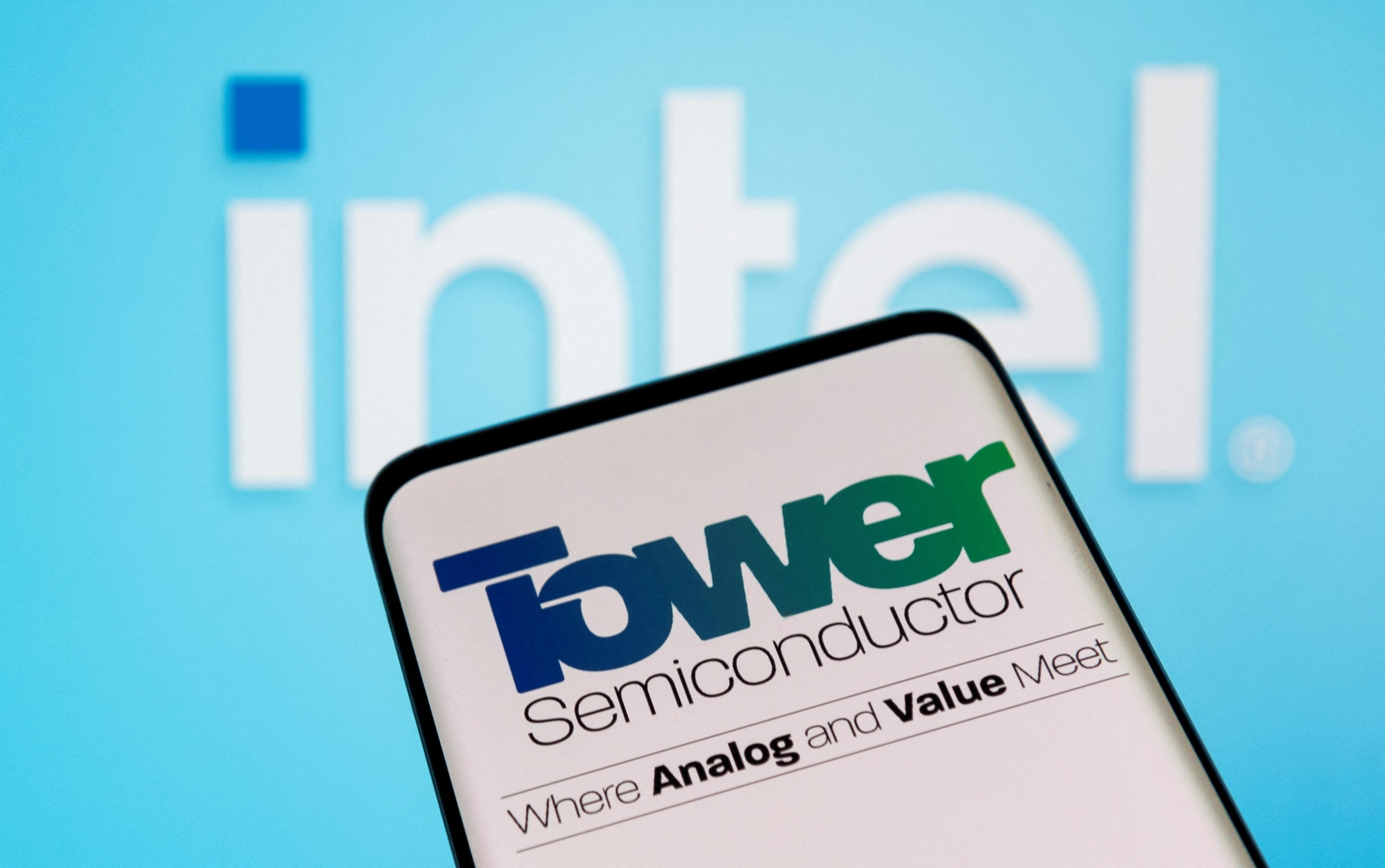
Tower Semiconductor is seen on a smartphone in front of the Intel logo shown in this photo taken on February 15, 2022. REUTERS/Dado Ruvic/Illustration/File Photo Get license rights
NEW YORK, Aug 16 (Reuters) – Intel ( INTC.O ) and Israeli contract chipmaker Tower Semiconductors ( TSEM.TA ) mutually called off a proposed $5.4 billion deal because they could not get regulatory approvals in time, the companies said on Wednesday.
Shares of the Israeli company fell about 9% in the US and Tel Aviv.
Intel, which decided to buy the tower last year, will pay a final payment of $353 million, the company said in a statement.
Tower and Intel did not provide details on regulatory approvals.
Reuters reported late on Tuesday that Intel would abandon the deal once it expires without regulatory approval from China.
“After careful consideration and thorough discussions, and with no indication of certain required regulatory approvals, both parties have agreed to terminate their merger agreement outside of the Aug. 15, 2023, deadline,” Tower Semiconductor said in a statement.
The development underscores how tensions between the U.S. and China on issues including trade, intellectual property rights and Taiwan’s future are spilling over into corporate deals, especially when it comes to tech firms.
Last year, DuPont De Nemours Inc ( DD.N ) scrapped a $5.2 billion deal to buy electronics maker Rogers Corp ( ROG.N ) after delays in getting approval from Chinese regulators.
Intel Chief Executive Pat Kelsinger said he was trying to get the tower deal approved by Chinese regulators and traveled to the country last month to meet with government officials.
But Kelsinger also said Intel would invest in its foundry business, which makes chips for other companies, regardless of the Tower deal.
In June, Israeli Prime Minister Benjamin Netanyahu announced that he had agreed to spend $25 billion on a new factory in Israel, the country’s largest international investment ever.
As a result, investors lost faith in the Tower deal. Tower’s Nasdaq-listed shares ended trading at $33.78 on Tuesday, a steep discount to the contract price of $53 a share.
In the second quarter, Intel’s foundry business posted revenue of $232 million, up from $57 million a year earlier, beating rivals such as industry leader Taiwan Semiconductor Manufacturing Co ( 2330.TW ).
The rise in foundry sales came from “advanced packaging,” a process in which Intel can combine chips made by another company to create a more powerful chip.
Demand for Intel’s chips cooled after two years of strong growth driven by remote work during the pandemic, leading the chipmaker to cut costs. It has pledged to cut costs by $3 billion this year, with a goal of saving $8 billion to $10 billion by the end of 2025.
Anirban Sen reports in New York; Additional reporting by Max Cerny in San Francisco and Anirudh Saligrama in Bangalore; Editing by Jamie Freed and Nivedita Bhattacharjee
Our Standards: Thomson Reuters Trust Principles.
